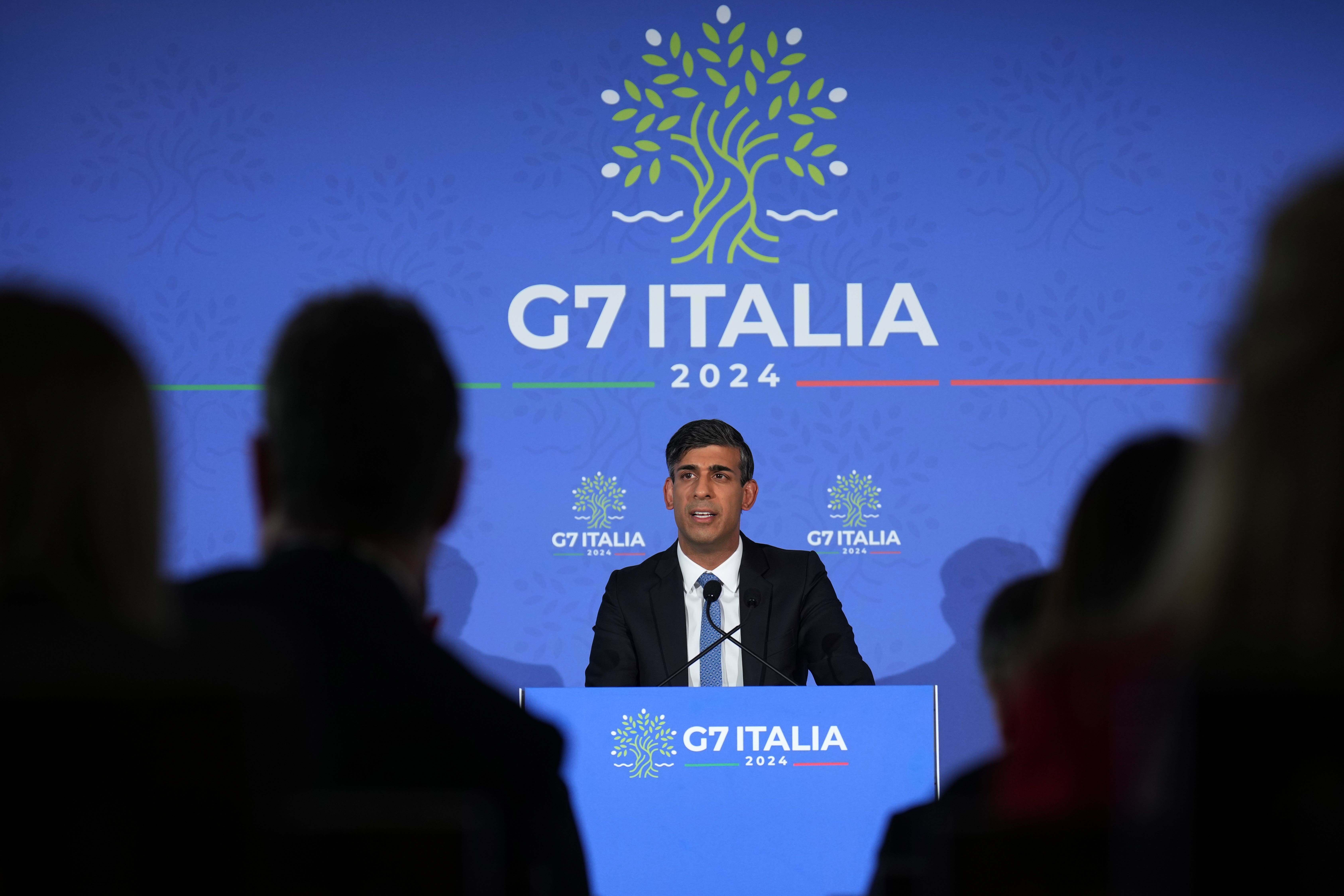Rishi Sunak says conversation in Europe ‘has changed’ on illegal migration
The Prime Minister made his remarks at the G7 meeting in Italy.

Rishi Sunak said “the conversation has changed” around migration laws in Europe as he and his fellow G7 leaders launched a coalition to combat the smuggling of migrants.
In a communique released at the end of the two-day summit in Puglia, the leaders of the UK, US, Germany, Italy, France, Canada and Japan said they were launching the coalition and “affirming our collective commitment and enhanced cooperation to address migration, tackle the challenges and seize the opportunities that it presents, in partnership with countries of origin and transit.
“We will focus on the root causes of irregular migration, efforts to enhance border management and curb transnational organised crime, and safe and regular pathways for migration.”
Mr Sunak said afterwards that “it’s very clear that the conversation in Europe has changed on the topic of illegal migration” from the fact that 15 countries signed a letter last month calling on the European Commission to tighten migration policy and to look at third-country schemes.
This may require changes to the return directive and a reassessment of what counts as a safe country under the EU’s asylum rules, he said.
Asked if he believed he would be able to secure reform of the ECHR following his discussions at the G7, the Prime Minister said: “I’ve been very clear that I believe our plans are compatible with our international obligations.
“But if I’m forced to choose between the security of our borders in our country, and a foreign court including the ECHR, then I’m going to put our country’s security and our border security first every single time, so I’ve been unequivocal on that point.”
He said he and Italian prime minister Giorgia Meloni have “seen eye to eye” on migration for some time.
Both countries have third-party agreements, Italy carries out third-country processing in Albania, while Mr Sunak has said his flagship scheme to send migrants to Rwanda for processing will finally launch in July if he wins the General Election.
Mr Sunak held bilateral meetings with leaders including Ukrainian president Volodymyr Zelensky and Indian prime minister Narendra Modi.
As both leaders prepare to defend their positions in upcoming elections, the Prime Minister met with the US President Joe Biden.
A Downing Street spokesperson said they discussed “making Russia pay for its illegal war in Ukraine” and the situation in the Middle East as they “agreed that Hamas should accept the deal and release the hostages.”
Mr Sunak also met with his Japanese counterpart Fumio Kishida and European Commission president Ursula von der Leyen.
He will attend the Ukraine peace summit in Switzerland this weekend.
Bookmark popover
Removed from bookmarks